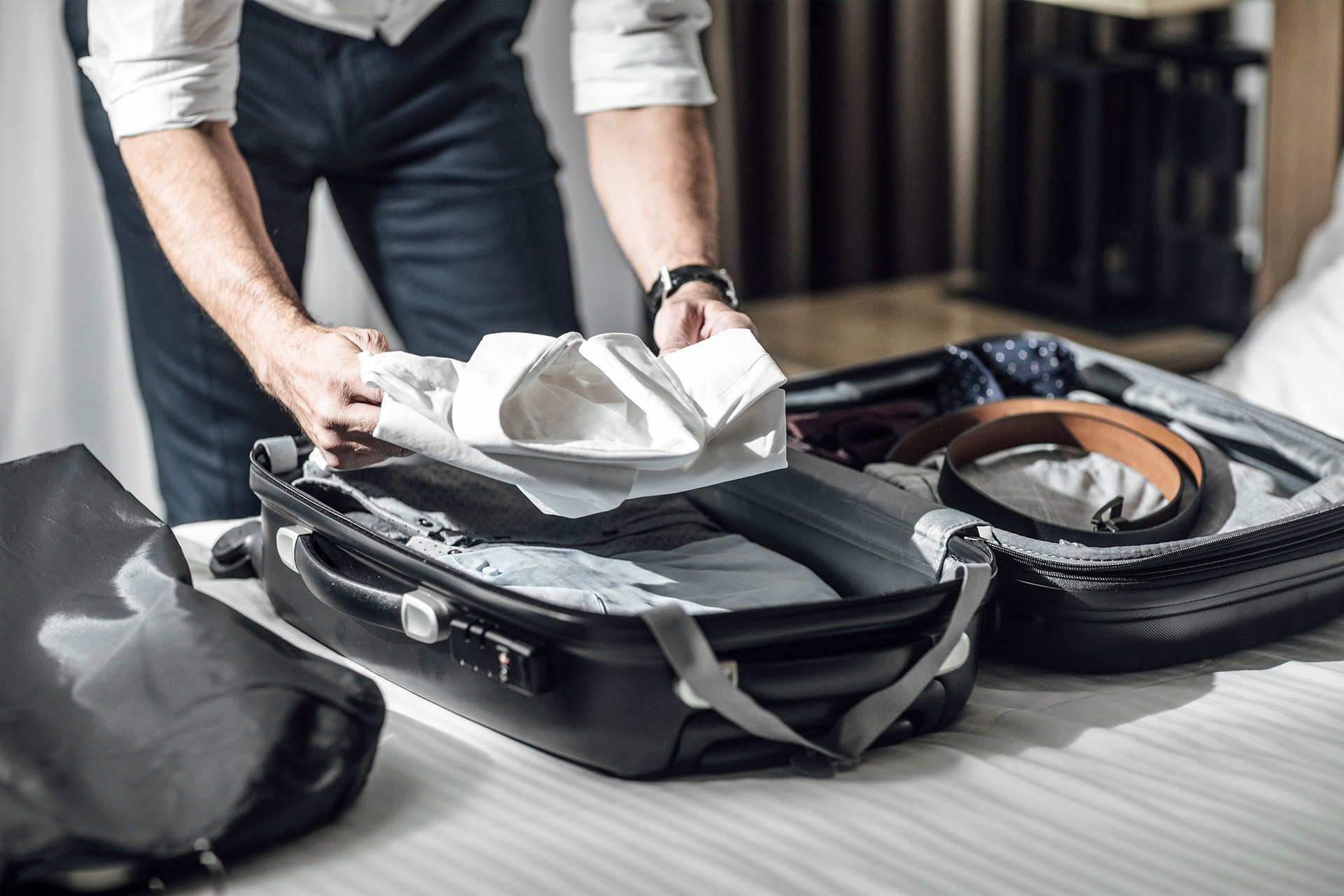How to prevent fires at home: 8 tips
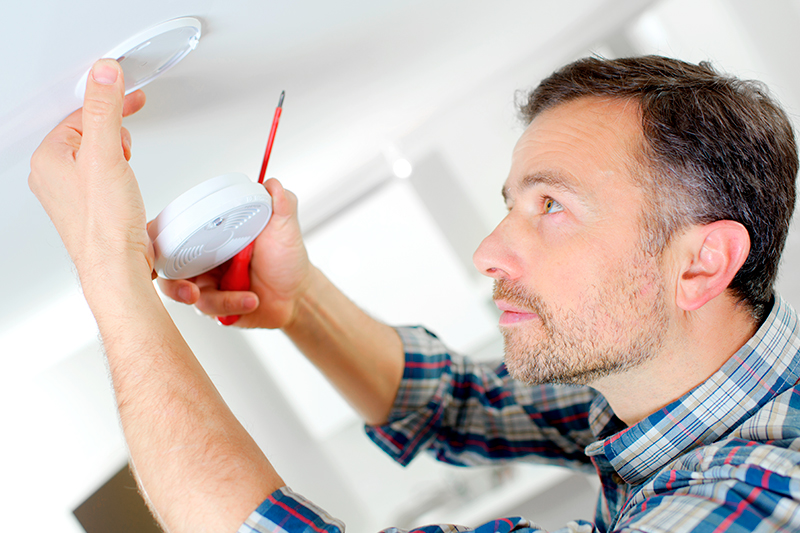
Did you know that in Québec, firefighters intervene on average on 5,600 domestic fires per year? And according to the Ministère de la Sécurité publique, human error is the cause of more than half of all house fires! A fire is a tragedy that can turn your life upside down in a split second. Ask Marysevictim of a disaster...
Maryse lost everything in a fire at her home. Completely overwhelmed, she didn't know how to get her life back on track. Here's how to make your home as safe as you possibly can. These fire prevention tips could probably have helped Maryse.

Advice on how to be prepared in case of a fire at home
There are things you can do today to be prepared in case of a fire. The number to remember: less than 3 minutes. This is all the time you would have to evacuate from your home if a fire broke out.
To win this race against time, be prepared to react quickly and safely if ever a fire breaks out. To achieve this, the watchword is to be prepared.
1. Check your smoke detectors
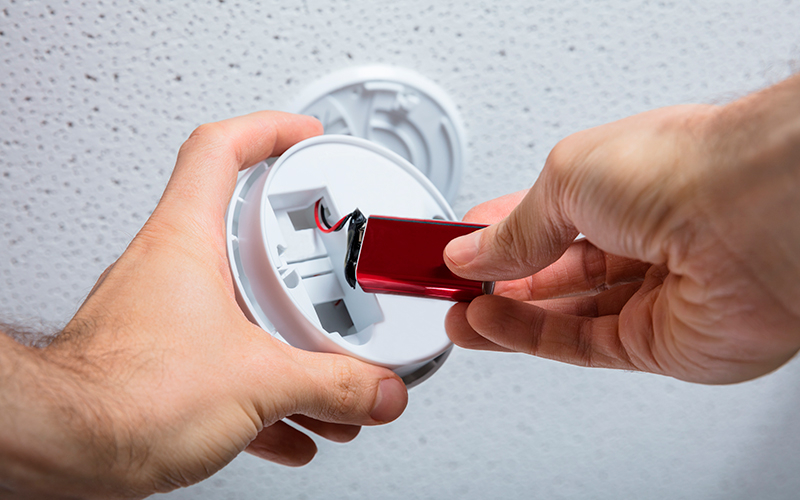
There should be at least one smoke detector or fire alarm installed per floor in your home. This allows your family members to be alerted quickly to evacuate your home
According to the Ville de Québec, 90% of fatal fires occur in homes where smoke alarms are missing or non-operational. In short, having smoke alarms that work well and in sufficient numbers can save your life and that of your loved ones.
To make sure that they are in good working order, ask yourself the following questions:
- Are your alarms still working?
Remember to test your alarms at least 2 times a year, when you need to change the time on the clocks. Replace the batteries on the alarms every 6 months or when you hear an intermittent beep. Buy a new alarm if it is more than 10 years old, if it is damaged, or has been painted over.
- Are they installed in the right places in the home?
Alarms should be installed where all occupants can hear them in the house or apartment.
Therefore, make sure that you have 1 alarm per floor, including the basement. Each hallway leading to the bedrooms should also have an alarm installed. If some occupants of the house sleep with their bedroom door closed, these rooms should be equipped with a warning device. Also, don't forget to install an alarm near each staircase for added safety.
- Do they meet Canadian standards?
Make sure that your alarms have the "ULC or "cUL logos of the Underwriters' Laboratory of Canada. This will tell you that they meet Canadian standards and reduce the risks of fire.
- What type of alarm should you choose?
Some smoke alarms are battery operated, and others are connected to the electrical system. In addition, there are different types of alarms.
Ionization smoke alarms are more sensitive to fumes and smoke. These are therefore suitable for bedrooms.
However, photoelectric smoke alarms are less sensitive to fumes and smoke. Install these types in the kitchen and bathrooms.
For rooms where a person with hearing loss lives, choose a strobe light alarm. Such a device emits both sound and light.
2. Get a carbon monoxide alarm
Carbon monoxide is odourless, colourless, and tasteless. It is released from appliances that burn a fuel such as propane, fuel oil, or wood.
However, this subtle gas can have harmful effects on your health. When you experience intoxication, you can feel nauseous, lose consciousness, and even die.
Conventional smoke alarms don't detect carbon monoxide. That's why you need to install a carbon monoxide alarm if you have such appliances in your home.
3. Buy fire extinguishers
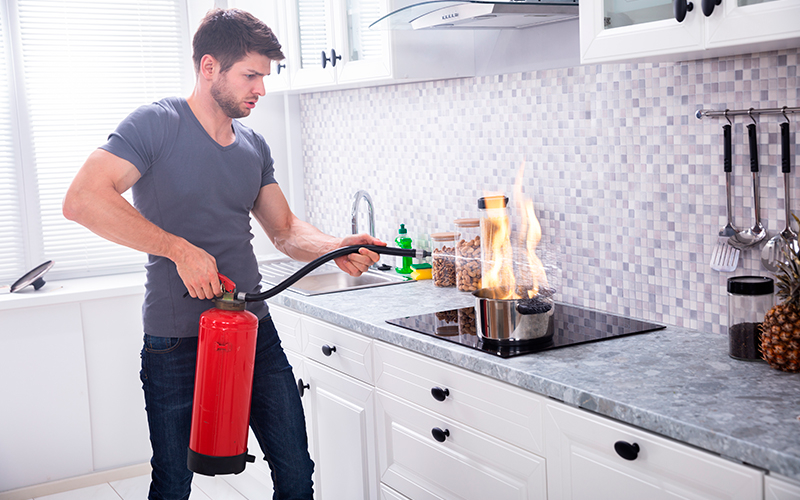
When you spot a fire starting in your home, you can use a portable fire extinguisher to put it out. However, using fire extinguishers when the fire has spread throughout the house is not recommended. The device should then be used to help you to clear a safe path and get out! Even if you can extinguish the flames with the fire extinguisher, evacuate the premises quickly and then call 911.
Install your fire extinguisher near an exit, away from the stove and other heat sources. Every month, check that it is still in good working order, that it has all its parts, and that the pressure of gauge is accurate.
There are 2 types of fire extinguishers:
- A single-use fire extinguisher
- A rechargeable dry-chemical extinguisher
Did you know that there are different classes of fire extinguishers according to the type of materials that can cause a fire in your home? Learn more about this to choose the class that suits your needs.
4. Make an evacuation plan
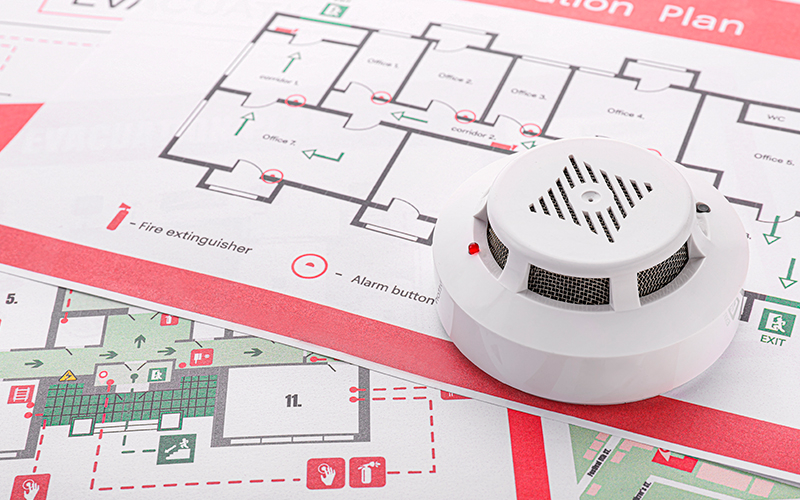
An evacuation procedure helps you plan how you will evacuate your home to a safe place in the event of a fire. Think about how to evacuate the entire household. Include in your procedure children, the elderly or people with disabilities who may have trouble hearing the alarm or moving around. You can even include your pet!
Involve the children in the fire safety drill; they will enjoy the "game"! Make sure that your family members are familiar with the 911 number and the evacuation plan. Several models exist on the Web. Practise at least once a year, and challenge yourself to get out in less than 3 minutes.
Tips for safe actions on a daily basis
Ready to react quickly if a fire breaks out? Do you also know how to prevent fires by applying safety measures every day?
Feel free to check out the Website of your city's fire department for more steps to take.
Here are some tips to apply today.
5. When you're cooking
- Turn the pan or pot handle toward the center of the stove when using the burner.
- Keep lids handy to easily smother flames if needed.
- Do not leave the stove burner on unattended.
- Avoid distractions: have another adult monitor the children, and keep your cell phone away.
- Keep your cooking area and pots or pans clean.
6. When you use your dryer
- Clean your dryer's lint filter after each use and remove any fluff residue that accumulates.
- Check that the air outlet on the exterior wall of the building is not obstructed by snow, for example. The vent must also be able to open to let air escape when the dryer is running.
- Make sure that your dryer has a metal exhaust duct; this should be short and straight. It must not have more than 4 bends.
- Shut off the dryer when you leave your home or go to bed.
7. Electricity
To avoid fires caused by overloading or misuse of electricity:
- Always have electrical work done by an electrician.
- Keep flammable materials at least 1 metre away from heat sources such as electric heaters, baseboards, and portable heaters.
- Avoid overloading electrical outlets and installing extension cords that run through the room or under the carpet.
- Choose bulbs with the correct wattage for your lamps.
8. If you have a fireplace or wood stove
- Have your chimney swept at least once a year, ideally in the spring.
- Have the pipes cleaned often. Creosote, a flammable residue deposited on the walls of the chimney, can cause fires when it accumulates.
- Only burn dry wood. Avoid burning plastic waste or wood that is stained, treated, or glued, to avoid creosote residues.
- Place the ashes in a metal bucket with a metal lid. Ashes can stay warm for 5 days after using the fireplace.
In conclusion
A fire is a major problem in a life and can often be preventable. Even if you know how to prevent fires, you are not immune to such a disaster.
If, like Maryse, you are a victim of such an upheaval, you may be looking to relocate quickly. Arrow Rentals offers temporary rentals and is the perfect solution to quickly resume your life. Check out the many options for furnished and fully equipped accommodation.



